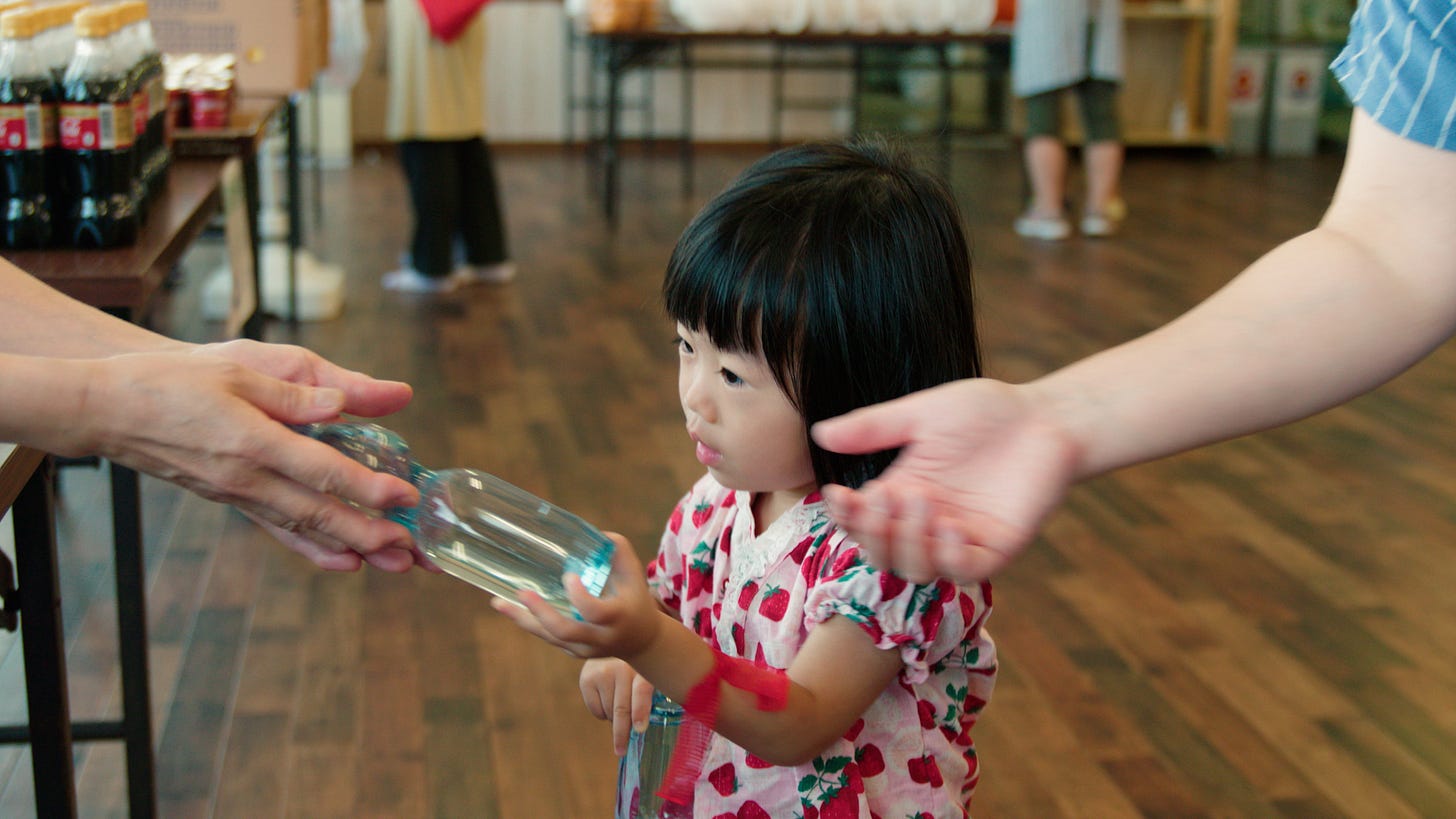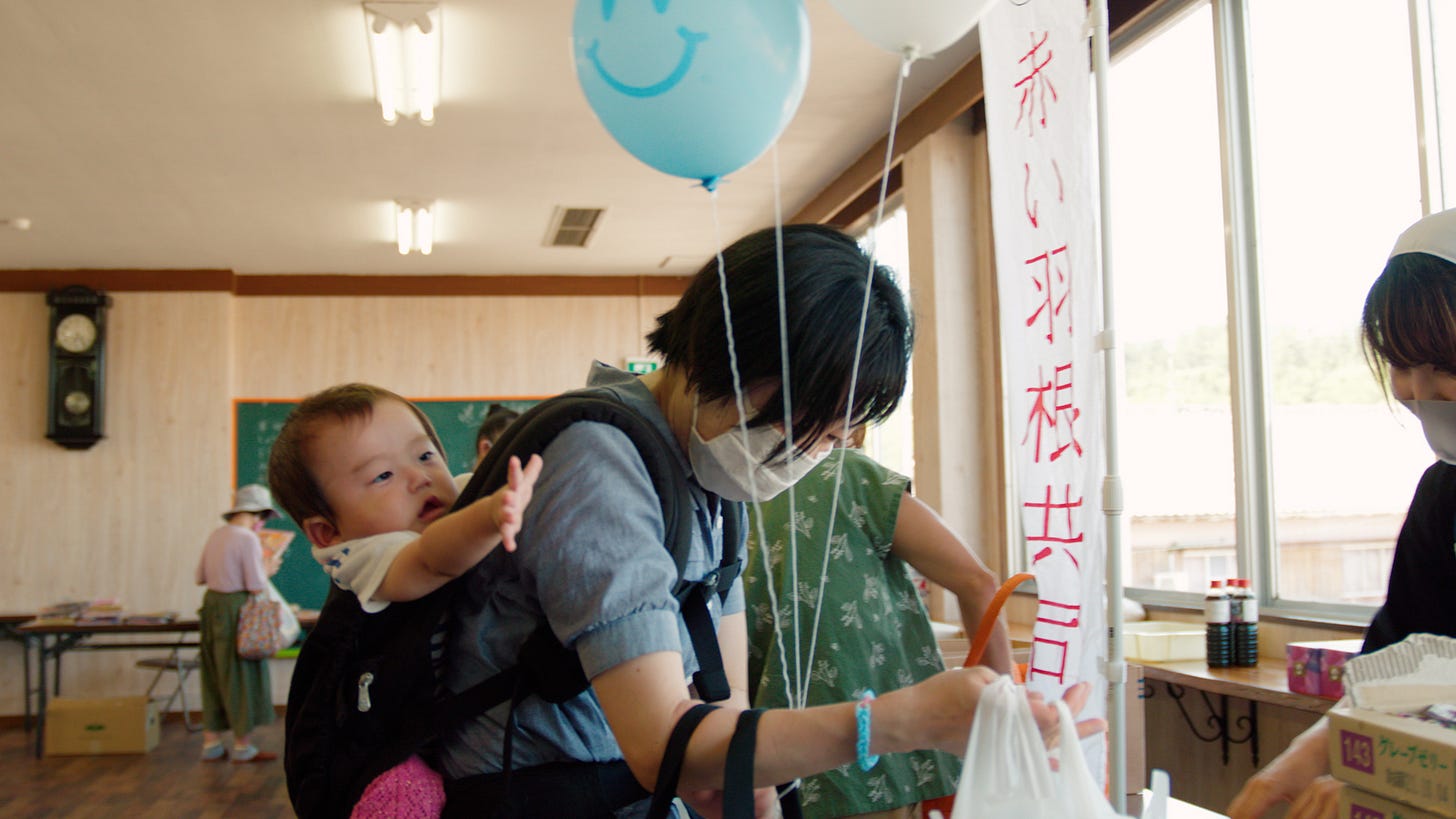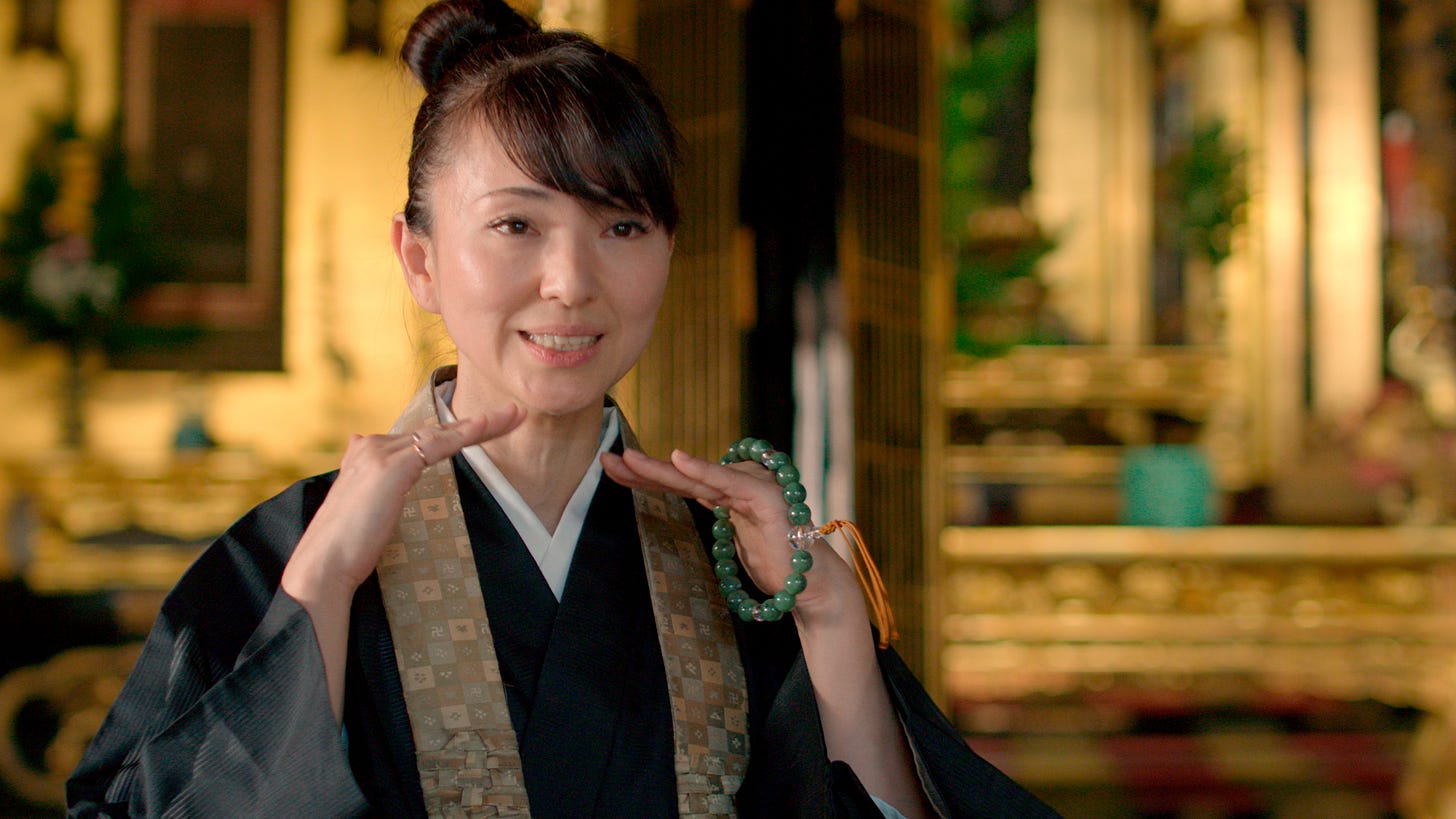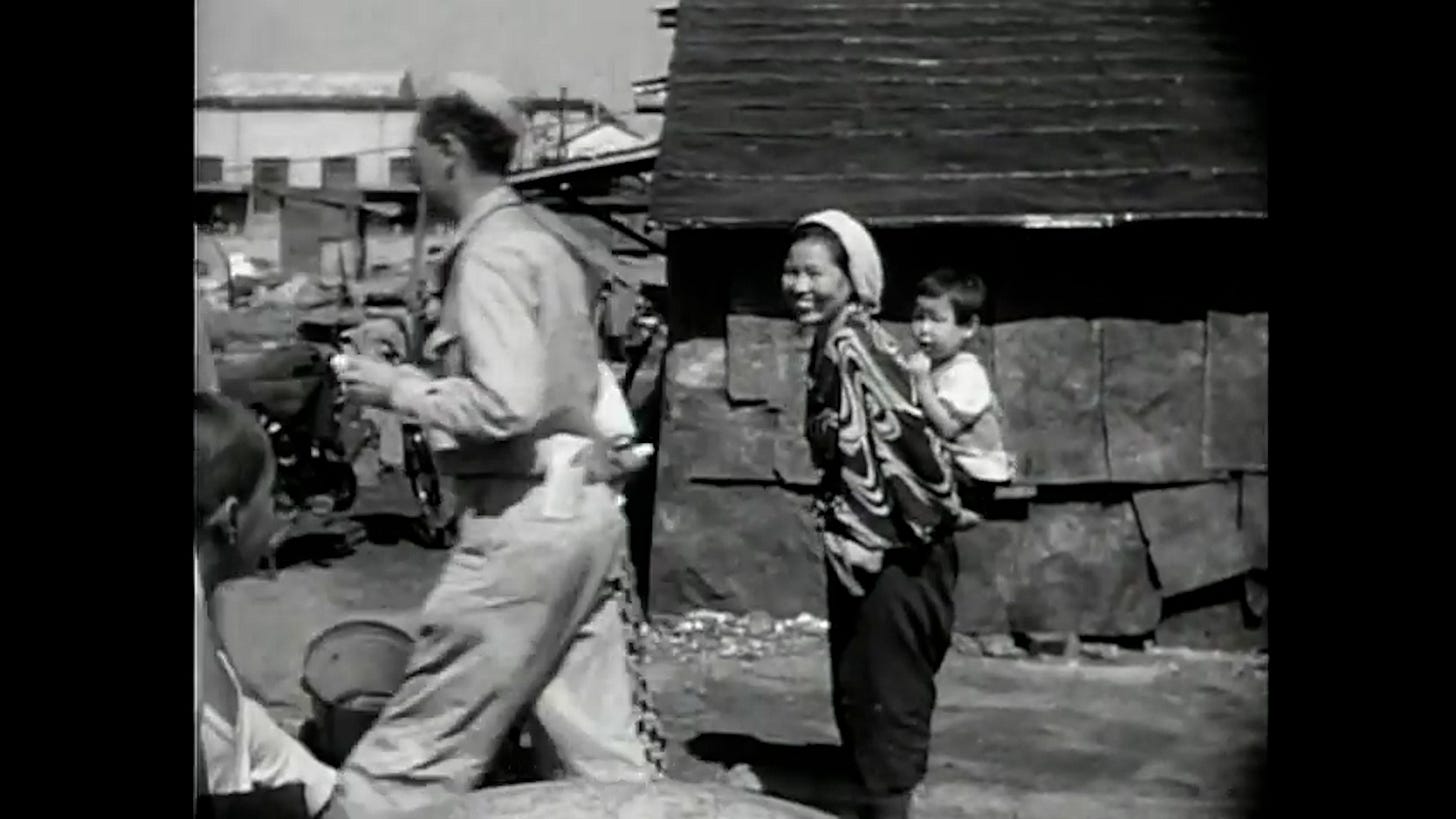Our crowdfunding campaign has come to an end and I want to thank everyone who donated so much for their kindness and support. I am overwhelmed by the kindness shown, and 100% of the donations will go towards promotion of the film and to submitting to over 200 film festivals this year.
After the crowdfunding was complete, I sent out a long email to the film’s supporters to say thank you and to fill them in on a little bit of behind the scenes information.
I’d like to take portions of that email and make it live on my substack. Once again, here is the trailer for the film. We will soon be holding a bipartisan screening for politicians at the Diet (government house).
For those of you who know me, a middle class Australian guy raised by the beach, first in Bondi (Sydney) and then Brisbane/Gold Coast, who loves martial arts and sports, the topic of single mothers and hidden poverty in Japan is no doubt the last thing you ever expected me to do a documentary on.
Documentaries can be entertaining, informative, and inspiring. They offer a unique and powerful form of storytelling that can capture the viewer’s attention and provoke thought and discussion, but for me, I had never wanted to be a documentary filmmaker. I had always wanted to film yakuza movies or action/suspense type films, based on my martial arts background of course. And then there is the professional wrestling, which makes it an even stranger combination.
When COVID hit in 2020, I like many others, lost a lot of work. Thankfully in 2021, I began to see a coincidental increase in video work related to documentaries. Lots of interviews to begin with, then I was selected to direct and film a big Fukushima government campaign to have the overseas import ban of Fukushima food products lifted. My treatment for the project was selected from a group of over 100 submissions and I was tasked with being asked to make a government PR video look like a documentary. The “documentary" was released on YouTube but also screened privately to visiting foreign diplomats and dignitaries, who came to watch the Olympics in 2021. It was so successful that 5 countries lifted their import restrictions immediately after the film was released (it’s on my vimeo page).
Here are some articles concerning the lifting of the bans, after my video was released:
Taiwan: https://www.dw.com/en/taiwan-ends-fukushima-food-import-ban-after-11-years/a-60692931
US and EU: https://www.foodsafetynews.com/2021/09/u-s-and-eu-ease-fukushima-import-rules
The video for the campaign is here.
Originally I was supposed to film and direct it (as well as edit), but when the people in charge found out I was a wrestler (one of them knew me), he was insistent that I also “star” in it. That’s why I am in it as well. Lastly, they actually me to voice it… so I became the narrator, despite having the anti voice of a narrator!
Through all of this, I realised I wasn’t that bad at making documentaries and rather enjoyed the process. As I moved on to short Japan related documentaries for the BBC, and also a 30 minute piece for NHK World, I was sitting down for coffee one day with my good friend and one of our producers F.J Fox, who I first met in Japan over 20 years ago. We had always wanted to work together on something, and had thrown each other scripts we had written to look at and critique. We were always in contact about potential fictional film ideas.
On this day, the random topic of single mothers in Japan came up. Frank (F.J) was raised by a single mother in California and I had just heard an absolutely awful story about a single mother here in Japan. We got to talking about the issue and Frank, who had told me he was so impressed with me snagging BBC and NHK jobs, said “You know, we should make a documentary on Japanese single mothers” and that’s how it began. A random idea over coffee in Hamatsucho.
I had no idea that poverty existed in Japan. Nobody anywhere would ever associate this country with that word and I was completely ignorant to it. However, that is the real danger of hidden poverty, it’s so hard to see and so hard to understand. I also had no idea that Japanese single mothers were struggling. I mean, we know it is probably very hard, but we don’t think about it. The mothers most definitely do not talk about it, and it certainly was a completely foreign concept to me.
So I began digging, and researching. The first thing I did was scour the internet to see if anyone had tackled this topic as a documentary before. To my surprise, I couldn’t find a single documentary on single mothers anywhere in the world. I found one low quality video about a African American single mother that was filmed about 7 years ago for YouTube, but other than that, there was nothing. After researching for a few weeks, I then wrote a treatment and gave it to Frank to look at. He was shocked, as was I, about the situation here in Japan. We knew we had a winner - we’d found a group of people that we could really do good for, through the power of documentary film.
Now armed with my treatment, which despite having written myself yet not even really understanding, I knew I needed help. I set out contacting people because I personally didn’t know any single mothers at all. I was so blind to this topic, I literally started from zero. I contacted every single Japanese single parent support group and NPO that exists and immediately got a reply back from Mayumi Nishida (one of the STARS of the film) but I wanted to wait.
Mayumi and her group Heart Full Family was a very small group, and I had a list of the top 5 single mother support groups that I wanted to work with because they had larger networks. In fact, the leader of the biggest group had a small media presence and I wanted to connect with her first, for obvious reasons. In Japanese, I called, emailed, faxed (we are in Japan after all!), sent Facebook messages, LinkedIn messages and she read them all, but never once replied. As I waited… and waited.. and waited some more, it was a common theme even to this day - Japanese NPO groups for whatever reason, are hard to work with. Either they got too many requests, or didn’t like the idea of being in a documentary made by a foreigner. Perhaps they thought I wasn’t truly serious but by this time, I had already had two meetings with Mayumi anyway, and I knew they were the group I wanted to help the most - they were the most sincere especially.
I noticed that every other group I had sent messages to also did not reply. And when it came time to email the kodomo shokudo (food pantries for children) groups later on, I sent over 100 emails to Tokyo groups and got 4 replies. Only 1 group agreed to be in the film - and they are in the film.

Mayumi introduced me to the two female monks in the film. They are both single mothers and they are both from different temples - temples that have been at war for over 500 years, all stemming from a fight between two brothers in the 1500’s. Even now, the monks don’t really like each other (at all actually!).
Together with one of my best friends and my filmmaking mentor Ivan, who graciously donated his time (and later, expertise in helping me clear up the final edit), the two of us drove 8 hours non stop out to Ishikawa and Fukui in the summer of 2021 (the air conditioner in our fairly new car broke as we began our trip home too), we went out and filmed the women and their events over that weekend.
Mai, the younger of the two monks, would NOT open up. She refused to talk about anything other than the event (the kodomo shokudo she was running that weekend). I had requested to film in her home, and that was rejected too. Japanese pride, one of the key factors in the poverty of single mothers, was plain to see. In fact, the only reason (and it was a godsend) that I mention kodomo shokudo (and hence, Japanese child poverty) in the film, is because that is all Mai wanted to talk about.
We tried to interview Mai a second time but that interview was also not what I was looking for at the time because my initial treatment did not include child poverty or kodomo shokudo. In the fact, the gods smiled on us as Mai provided the perfect topic - Japanese child poverty. 1 in 7 Japanese children are in poverty as we speak, and it’s a cycle that keeps spinning as fast as it can. To me, it was absolutely insane that kodomo shokudo is even a thing! How could a country so affluent as Japan have a need for children’s food drives? That shows right there how Japan is doing - there are kodomo shokudo in every city in Japan and in lots of cases - multiple food pantries in each city. Mai may not have given us even a glimpse into her private life, but she gave us such an important issue to include in the film and so, everything happens for a reason.
Fumi, the other monk, tells her story of domestic violence. I don’t need to repeat that story here, but getting someone to open up on film about DV was next to impossible. What courage and dignity she displayed to tell me her story.
I also knew that I needed experts on not only single mothers but also experts on Japan, to help guide the film along. This film was always intended to be for both Western AND Japanese audiences. From day 1, there was never any wavering about that. This was a film that the whole world needed to see and that is why I knew I needed to explain Japan to people. If you don’t live here, you don’t know… but even the ones who do live here (Japanese and non Japanese alike) needed to be reminded or informed. A lot of Japanese people have said “benkyou ni narimashita” - they learned a lot from watching.
For the history section - I sought my favourite author Mr. Robert Whiting. Bob tells us how Japan changed from post war to today. Professor Kato from Meiji University also brought a wealth of knowledge as he explains how Japanese society and the role of women changed, as well as the Japanese new nuclear family concept. My good friend Dr. Greg Story brought all his knowledge of 30 odd years living in Japan as a top businessman to the table and completed the trio.
Experts on the subject were two amazing university professors - Professor Yanfei Zhou and Dr. Jeff Kingston. I had found Dr. Jeff via a short three minute news story on YouTube about single mothers in Japan, where he was interviewed. I reached out to him and he replied straight away and he was the first one to really help me understand the problem. It’s no coincidence that his voice is prominent throughout the film - because the film is a record of the journey I went on to understand the plight of single mothers in Japan.
Professor Zhou is an accomplished writer on the topic of single mothers and initially she rejected me as I had contacted her during the busy period of university. I was so determined to include her voice in the film that I didn’t give up, and I told her I was happy to wait until she had more free time. 6 months after we first talked, I finally got the interview with her that I wanted.
The other brave single mothers help tell the real life stories and situations that single mothers here face. They are brave, battle hardened warriors.
I want to finish by answering to two questions that I am often asked:
1. Why didn’t you include single fathers? I basically made the decision early on that this would be about mothers. Although I did interview one father, I felt that single fathers (and the idea of joint custody) might make for an interesting story on its own. And, the poverty levels of single mothers and single fathers are completely different. They both struggle, but it’s clear who is getting the shorter end of the stick.
2. Why did you make it a happy ending? To provide hope. These women are not victims, they are battling warriors. Together, we can make this battle just a little bit easier for them.
I have already submitted the film to over 120 film festivals worldwide (we won three awards in January) and these festivals have been spread out over the course of 2023. I plan to submit to at least 200 this year in total. We will also be having bipartisan screenings at the Diet (which I hope to start as early as this month or March) as well as public screenings in the future. Distribution is hopefully on the horizon too. If you have any ideas on how to have the film seen to the masses - without putting it on Youtube for free - I would love to hear your ideas.
I have learned a lot from making this film. I’ve learned how to be more compassionate, to understand the hardships of others, and to try to see the SOS calls for help that people may be trying to give out. It was truly been a life changing experience.
Rionne McAvoy is the director of the award-winning documentary The One's Left Behind: The Plight of Single Mothers in Japan, showcasing his dedication to addressing pressing social issues. A committed documentary filmmaker and professional wrestler, he explores critical themes with passion and insight. Additionally, he has a keen interest in post-World War II Japan, particularly the intricate connections between politicians and gangsters during that era. Known in the wrestling ring as Rionne Fujiwara, he brings the same determination and storytelling prowess from his wrestling persona to his filmmaking endeavors.












